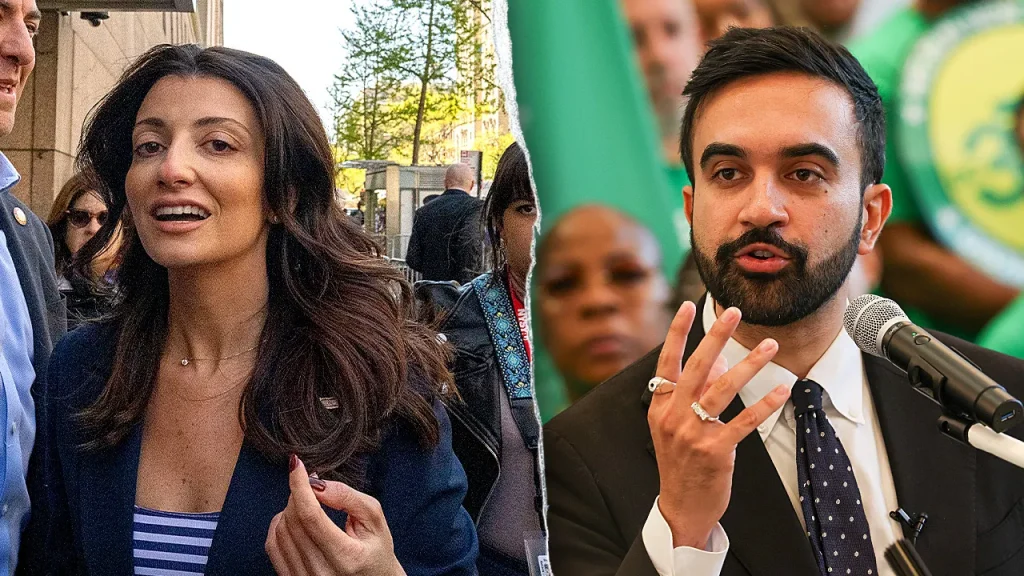Republican Councilwoman Challenges NYC Mayor-Elect’s Promise to Arrest Netanyahu
In a bold political move that highlights the tensions surrounding New York City’s incoming administration, Republican Councilwoman Inna Vernikov has formally invited Israeli Prime Minister Benjamin Netanyahu to visit the city on January 1, 2025—the very day Mayor-elect Zohran Mamdani takes office. This invitation serves as a direct challenge to one of Mamdani’s controversial campaign statements, in which he suggested he would arrest Netanyahu if the Israeli leader entered New York during his mayoral tenure. The International Criminal Court issued an arrest warrant for Netanyahu in 2024 over alleged war crimes in Gaza, though the United States does not recognize ICC jurisdiction. Vernikov, who represents a district with a significant Jewish population in southern Brooklyn, described Mamdani’s arrest pledge as “irresponsible and frankly absurd” in her public letter to Netanyahu, underscoring the growing friction between the incoming administration and members of the city’s Jewish community.
The dispute reflects deeper divisions within New York City’s political landscape following Mamdani’s unexpected rise to prominence and subsequent electoral victory. Vernikov, who is Jewish herself, defended her invitation by characterizing Israel as “a beacon of hope, freedom, western values, resilience, and strength in a region surrounded by tyranny and terror.” In a separate statement, she dismissed Mamdani’s campaign promises as “fantasies from a utopian pipe dream,” suggesting the mayor-elect’s supporters would soon discover “that Zohran Mamdani is a scam.” Even Democratic Congressman Jerry Nadler, who supported Mamdani’s candidacy, has distanced himself from the Netanyahu arrest proposal, telling the New York Times it was “simply unrealistic” and clarifying that “The City of New York has no jurisdiction to do such a thing.” This criticism from within Mamdani’s own political camp highlights the practical and legal challenges surrounding his more controversial positions.
Despite facing significant criticism from Jewish leaders and organizations throughout his campaign, Mamdani secured a convincing victory in the mayoral race. His positions on Israel became a flashpoint during the election, with over 650 rabbis signing a letter condemning statements they viewed as antisemitic. Following Mamdani’s election, major Jewish organizations including the UJA-Federation of New York, JCRC-NY, ADL New York/New Jersey, AJC New York, and the New York Board of Rabbis released a joint statement acknowledging the election results while expressing concern that “the Mayor-elect holds core beliefs fundamentally at odds with our community’s deepest convictions and most cherished values.” The statement reflected widespread anxiety within New York’s Jewish community about how Mamdani’s administration might approach issues related to Israel and antisemitism.
Recognizing these concerns, Mamdani has attempted to reassure skeptical Jewish New Yorkers since his election victory. During his election night speech, he promised to “build a City Hall that stands steadfast alongside Jewish New Yorkers and does not waver in the fight against the scourge of antisemitism.” The following day, he reiterated that he takes antisemitism “incredibly seriously,” signaling an effort to bridge divides with a community that largely opposed his candidacy. These statements represent Mamdani’s first attempts to transition from campaign rhetoric to the more nuanced positions required of a mayor responsible for representing all New Yorkers, including those who did not support his candidacy.
The Netanyahu controversy exemplifies the challenging path ahead for Mamdani as he prepares to govern America’s largest city. While his progressive platform resonated with enough voters to secure his election, implementing controversial positions—particularly those with international implications—will require navigating complex legal, diplomatic, and political realities. The United States government maintains strong ties with Israel, and any attempt by a city mayor to arrest a foreign head of state would likely face insurmountable legal and practical obstacles. Additionally, such actions could potentially damage New York City’s status as a global diplomatic hub and home to the United Nations headquarters, raising questions about whether campaign promises might need to be tempered by governance realities.
As Mamdani’s January inauguration approaches, this early challenge from Councilwoman Vernikov highlights the political minefields the incoming mayor must navigate. His administration will need to balance the progressive values that powered his campaign with the pragmatic requirements of governing a diverse city of over eight million residents. Whether Netanyahu accepts Vernikov’s invitation remains to be seen, but the symbolic confrontation already reveals the tensions that will shape New York City politics in the coming years. For Mamdani, reconciling campaign rhetoric with governance responsibilities—particularly on divisive international issues—may prove to be one of his earliest and most significant tests as mayor, one that will set the tone for his relationship with both the Jewish community and other constituencies across the five boroughs.














